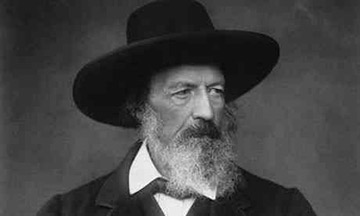
My father sometimes commented that had his homeland been as flat as Lincolnshire, he may not have been necessary to leave Dominica in the first place. I'm not entirely convinced that would have been so, because Antigua, for instance, is also in the Windward Islands and is very flat by comparison to Dominica, but opportunity was severely constrained there just as elsewhere in the Windwards in the 1950s.
The contrast between where my father came from and where he came to was stark. Anyone from North Lincolnshire who knew my father well, knew that he loved going for walks in the countryside, often for several miles, often in solitude. He formed an abiding connection with the countryside - the land - that lasted for the rest of his life.
He, just as most West Indian immigrants were, was from the country. He therefore considered it natural that he should live in the country in England. The fact that he was, to a large degree, setting a precedent is quite typical of the man, and of the family from which he came.
Many West Indian immigrants of the 1950s and 60s upon first arrival considered themselves as continuing in the very best traditions of the United Kingdom, sometimes consciously, sometimes unconsciously through education and upringing. In school they were taught an extensive range of classical English poetry and prose, more so than anything relating to their own culture.
Tennyson's The Brook, which is featured in Chapter Two of the book, is believed to have been located in Somersby, Lincolnshire, the county to which my father emigrated, and is a celebration of the Lincolnshire countryside from which Max LeBlanc drew so much pleasure.
The Brook by Alfred Lord Tennyson
I come from haunts of coot and hern:
I make a sudden sally
And sparkle out among the fern,
To bicker down a valley.
By thirty hills I hurry down,
Or slip between the ridges,
By twenty thorps, a little town,
And half a hundred bridges.
Till last by Philip’s farm I flow
To join the brimming river,
For men may come and men may go,
But I go on forever.
I chatter over stony ways,
In little sharps and trebles,
I bubble into eddying bays,
I babble on the pebbles.
With many a curve my banks I fret
By many a field and fallow,
And many a fairy foreland set
With willow-weed and mallow.
I chatter, chatter, as I flow
To join the brimming river;
For men may come and men may go,
But I go on forever.
I wind about, and in and out,
With here a blossom sailing,
And here and there a lusty trout,
And here and there a grayling,
And here and there a foamy flake
Upon me, as I travel
With many a silvery waterbreak
Above the golden gravel,
And draw them all along, and flow
To join the brimming river;
For men may come and men may go,
But I go on forever.
I steal by lawns and grassy plots:
I slide by hazel covers;
I move the sweet forget-me-nots
That grow for happy lovers.
I slip, I slide, I gloom, I glance,
Among my skimming swallows;
I make the netted sunbeam dance
Against my sandy shallows;
I murmur under moon and stars
In brambly wildernesses;
I linger by my shingly bars;
I loiter round my cresses;
And out again I curve and flow
To join the brimming river;
For men may come and men may go,
But I go on forever.